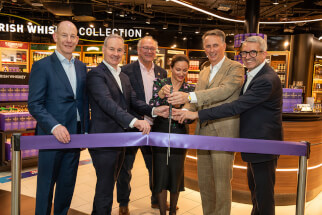ASUTIL holds 2nd webinar discussing current situation
Taking part in ASUTIL’s second webinar were José Luis Donagaray, Secretary General ASUTIL; Carlos Loaiza, Secretary General Chamber of Uruguayan Free Shop Operators (CEFSU), Gonzalo Yelpo, Legal Director Latin American and Caribbean Air Transport Association (ALTA); Alvaro Neto, Executive Director Dufry Group Mexico; Arnaud de Volontant, VP Conferences TFWA; and Gustavo Fagundes, COO South America, Dufry Group.
Donagaray opened the floor by discussing the general overview of South America, in particular two items: the vaccination rates of the various countries and the reduction of taxes for Spirits and Fragrances at the Paraguay border.
In South America, the number of people fully vaccinated has double in one month, with Uruguay and Chile two of the most-vaccinated countries in the world.
Carlos Loaiza next discussed recent developments, in particular the opening of the Uruguayan border with Brazil and steps forward.
In addition to discussing the reopening of the border, he spoke of how the government had thankfully decided the border duty free stores were part of the tourist industry and therefore received part of a tourism relief package.
Sales since reopening are now down only 16% from pre-pandemic times, and the average ticket is up 19%. The product basket remains virtually unchanged by category, with Spirits at 35%, Fragrances 22%, Clothing 20%, Electronics 19% and other at 4%.
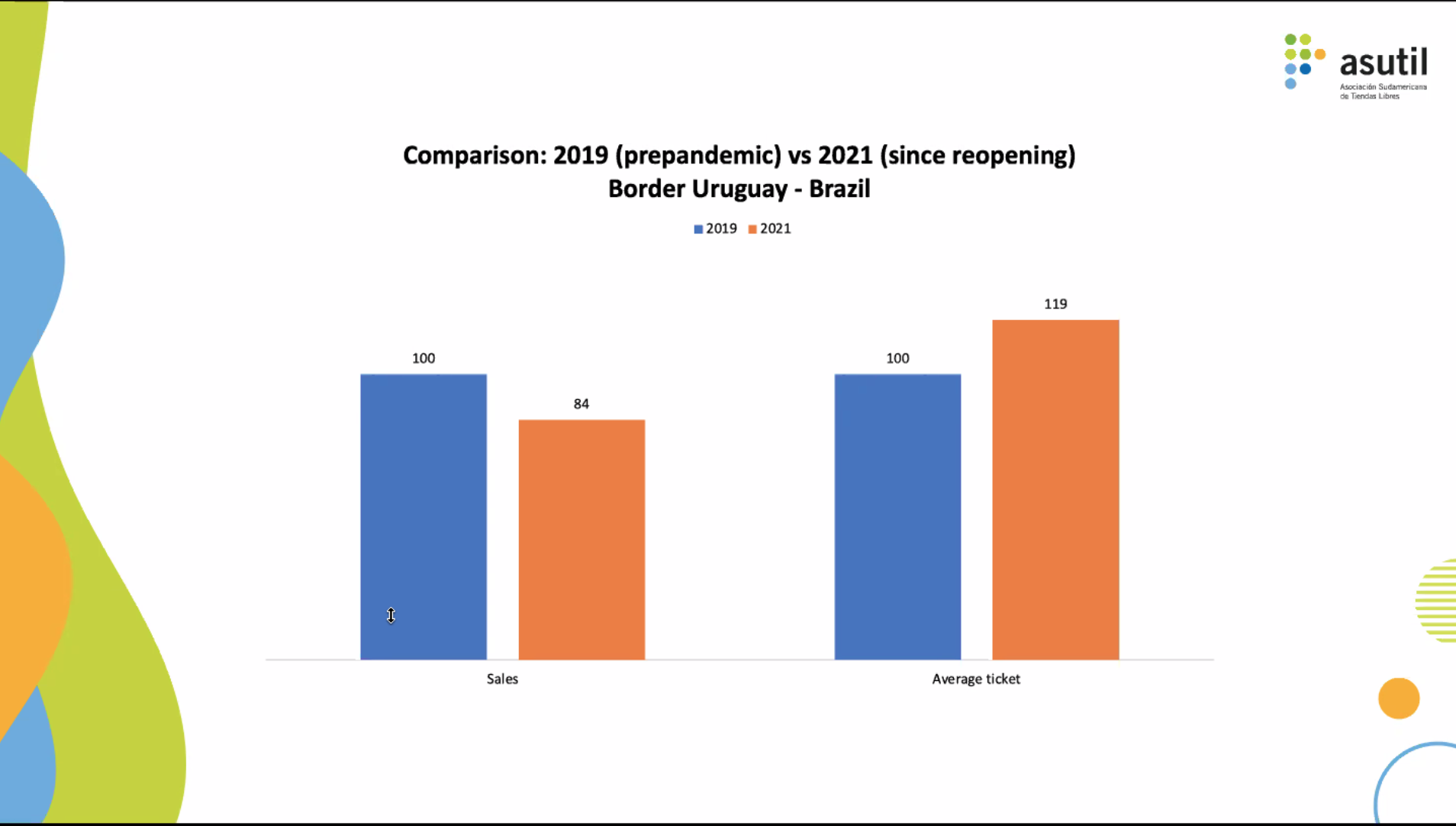
Loiaza discussed short-term and long-term goals, which he titled low-beam and high-beam, as below.
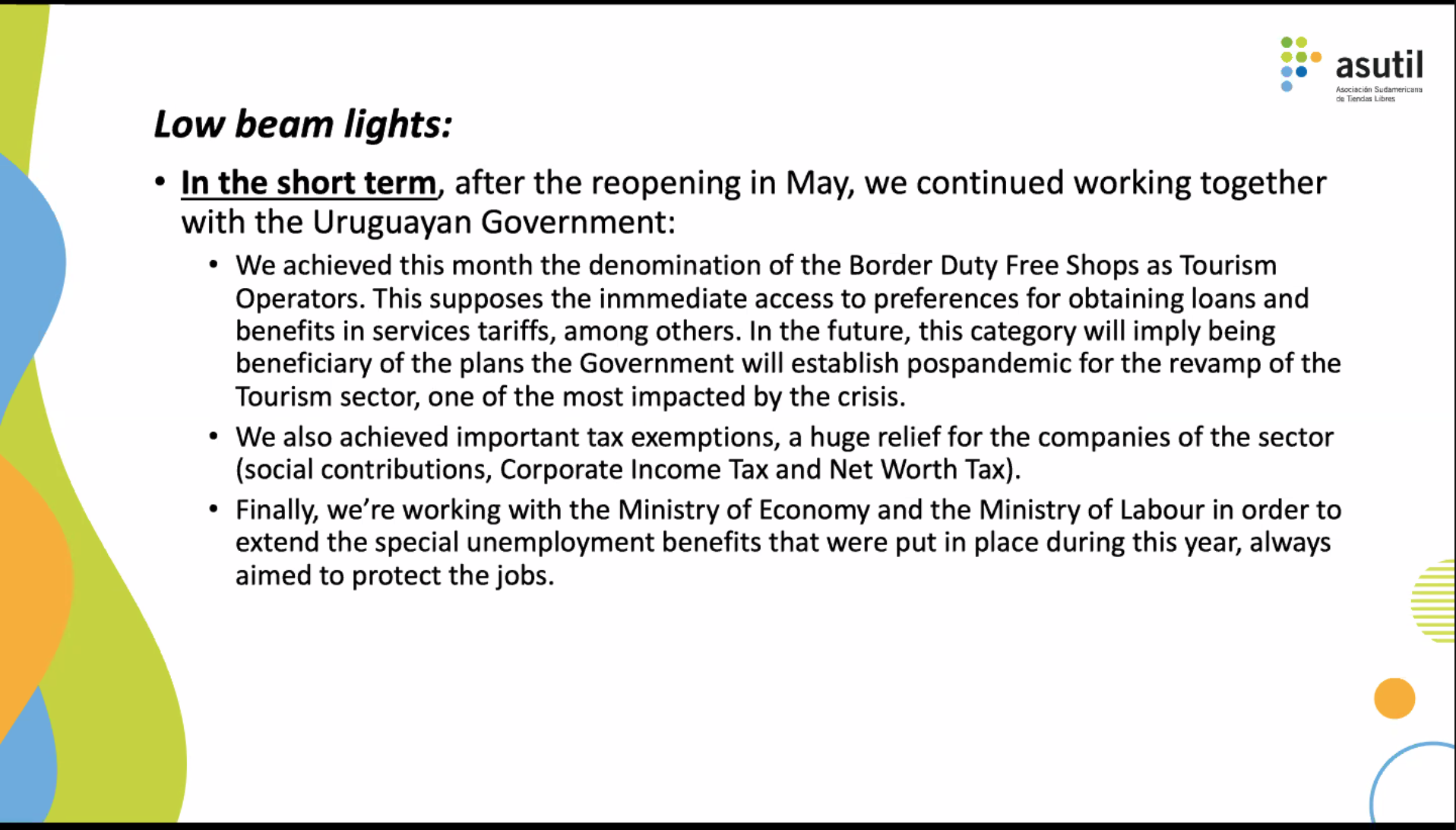
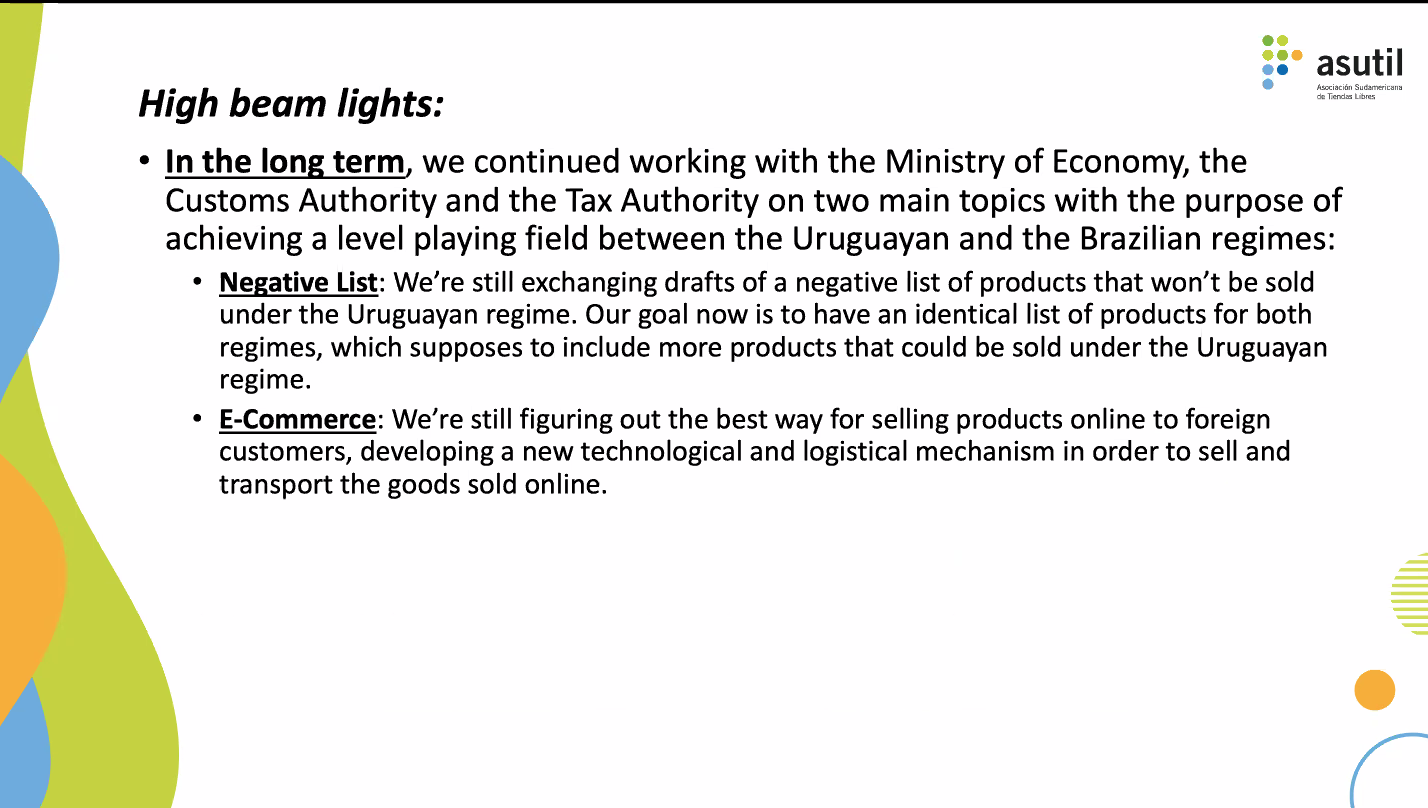
After Loaiza, Gonzalo Yelpo, ALTA, spoke.
He discussed the negative air passenger growth, how the sector continues to be negatively affected and how recovery is a long way off.
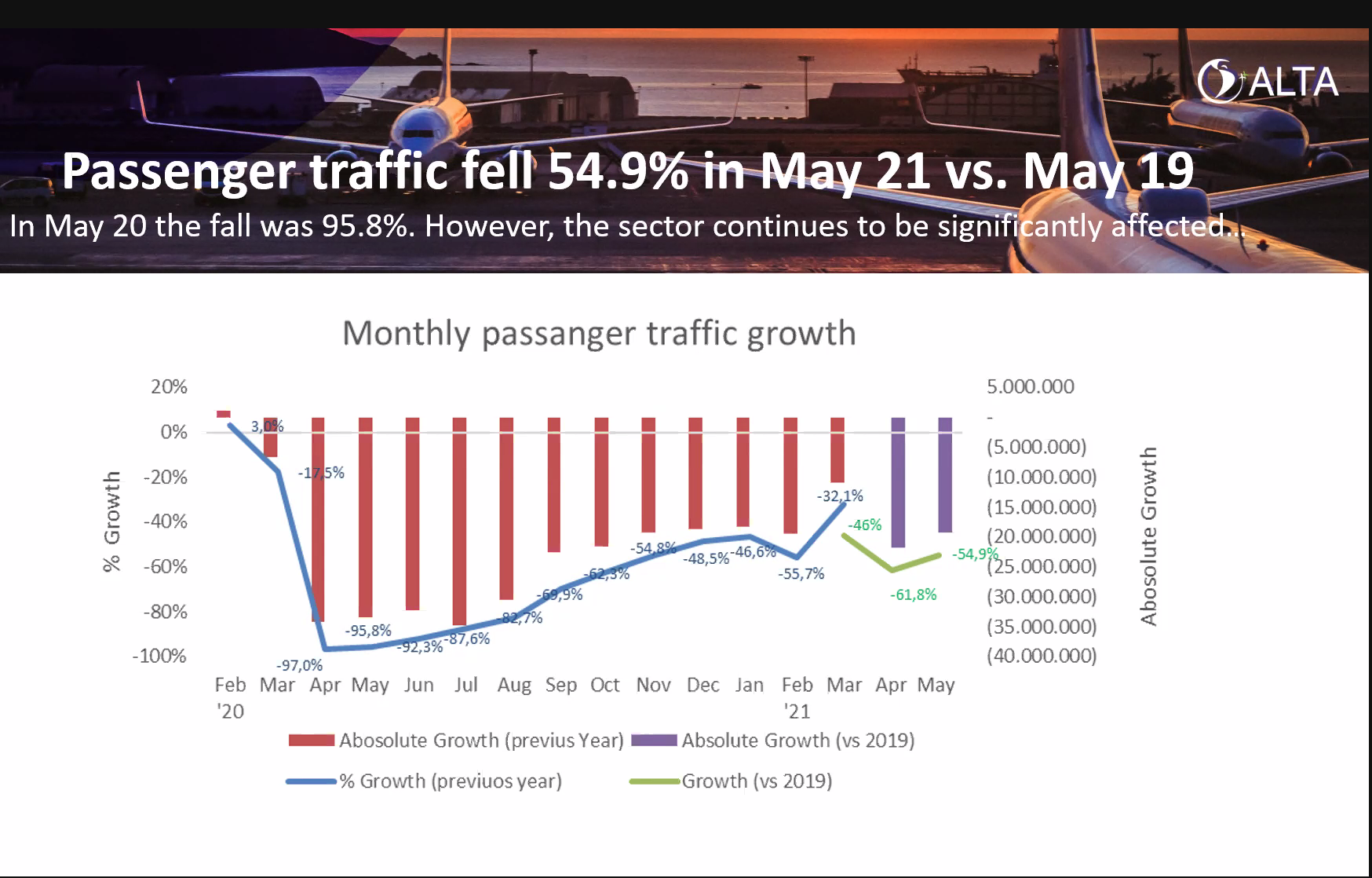
Yelpo was passionate about the need for governments to understand the necessity of learning to live with the virus instead of trying to approach zero infections. Most regions will not see a recovery to 2019 levels until 2024.
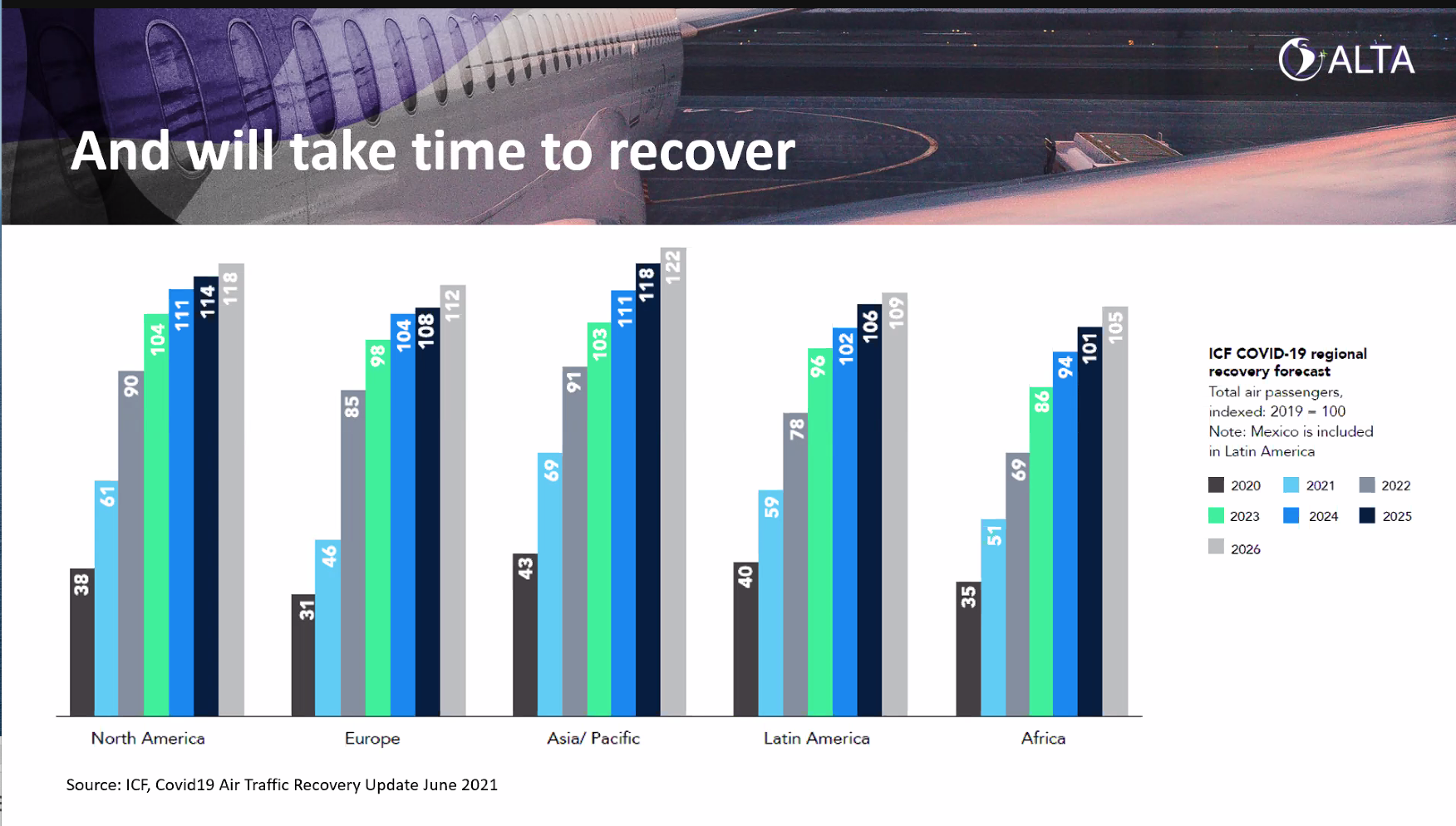
Yelpo stressed that border lockdowns and restrictions were often irrational and did not appear to have a direct bearing on the number of cases in a given country, with Mexico as an example having lower cases per capita than Chile, though Mexico has remained open.
That being said, Brazil was heavily affected by the variant that developed there.
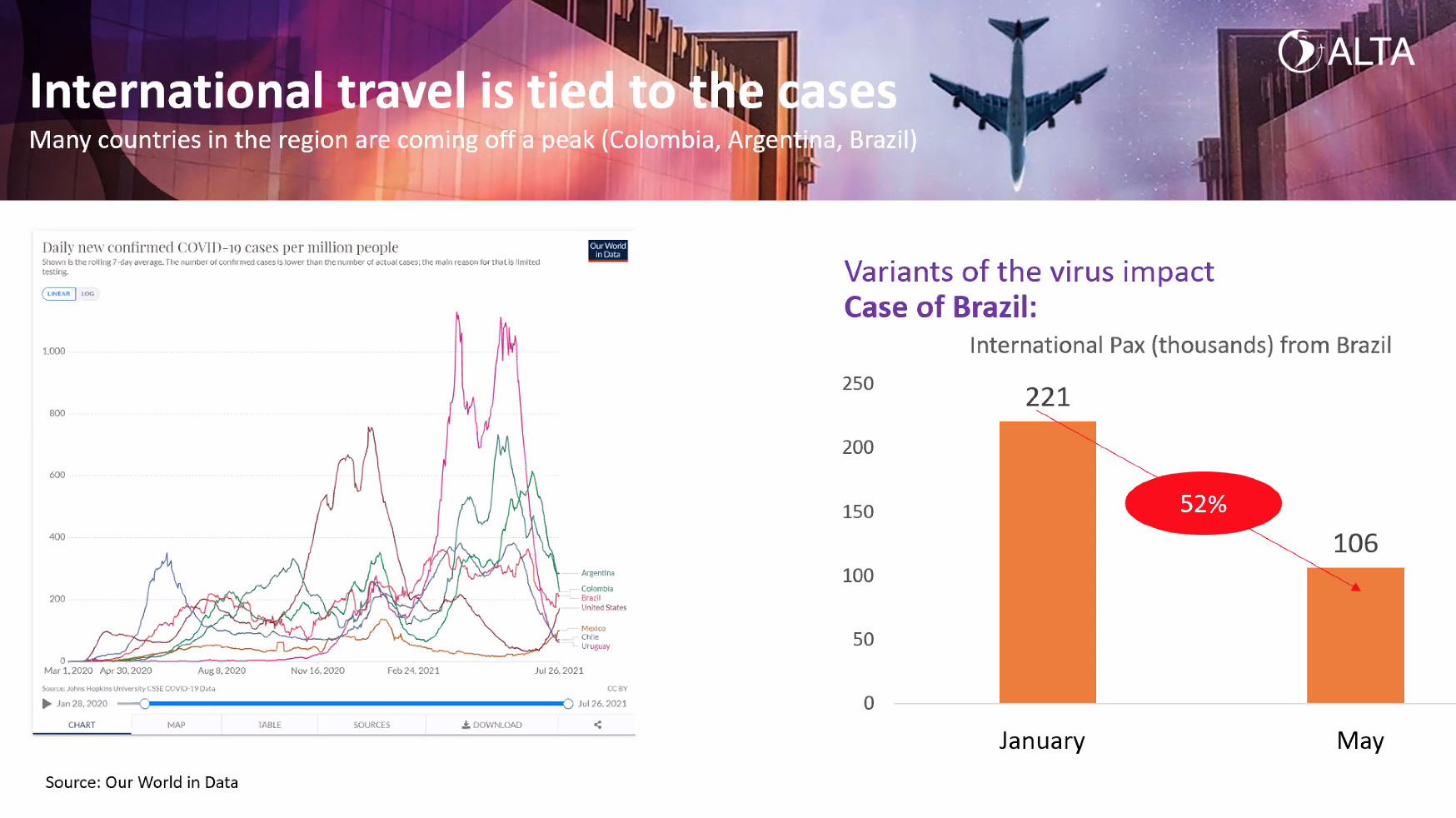
Alvaro Neto, Dufry Mexico, discussed the differences between the tourist areas of Mexico — mainly Cancun and Los Cabos — and Mexico City, which operates more on business travel. Neto says Dufry’s net sales at Cancun and Los Cabos are currently down approximately 20% from 2019, while in Mexico City that number is closer to 50%.
As expected, business travel is taking longer to resume, given the inability of some people to travel from their country of origin and also because the business environment has changed, with Zoom becoming the meeting venue of choice.
After Neto came Arnaud de Volontant, who discussed TFWA in Cannes, the safety standards, the changes to social events and daily hours, and after a question from the press suggested that they are hoping for 75% of regular visitors, Gustavo Fagundes took the floor.
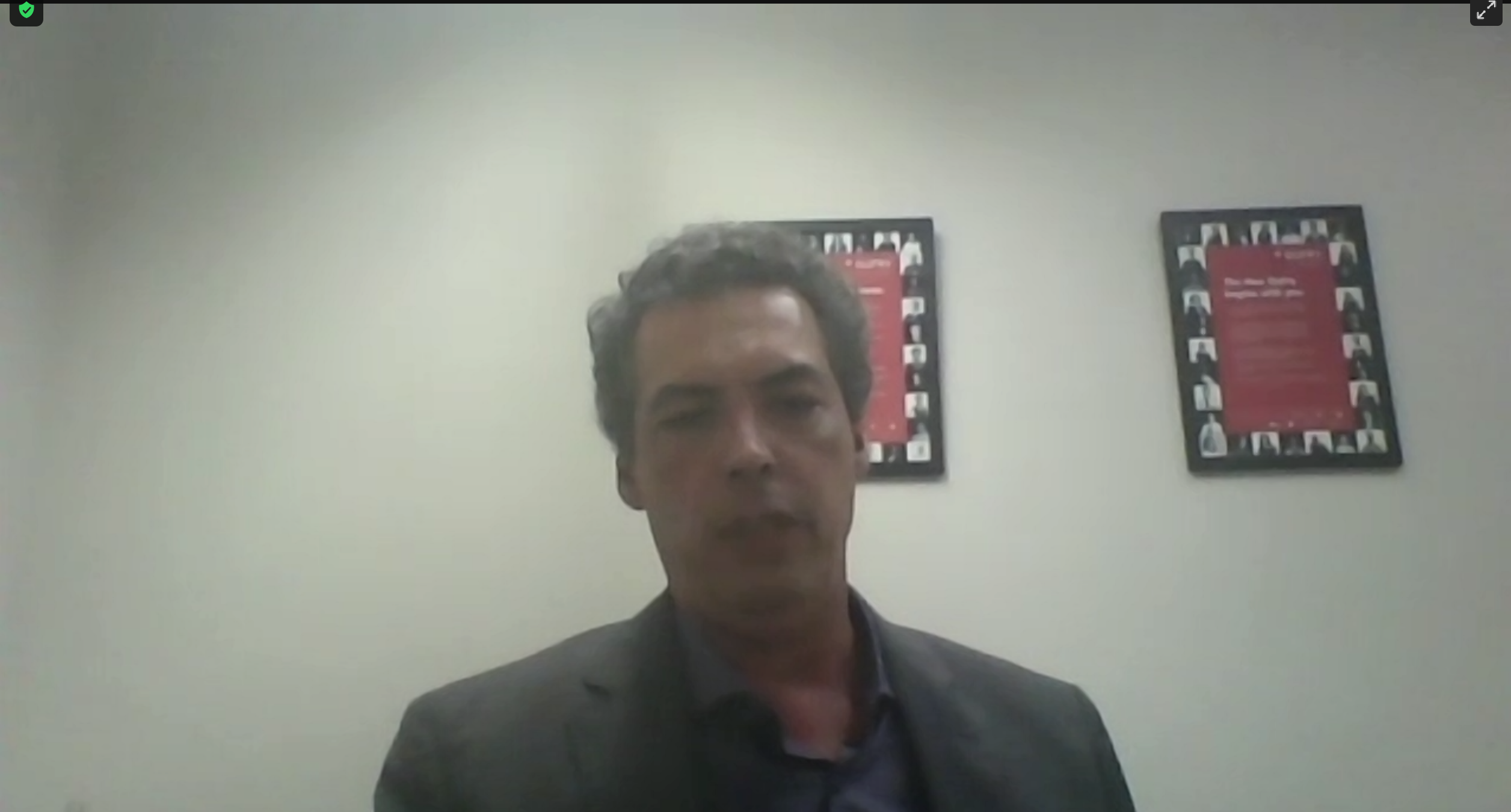
Fagundes discussed how the travel world and the travel retail world is not the same as we have been thinking of it, and the traveler is not exactly who we think of him/her as being.
Travel retail is travel retail, whether it is duty paid or duty free. The individual who normally travels internationally is currently traveling domestically. Additionally, the lines are blurred between leisure and business, especially as so many people are no longer working from an office. A person could bring the family to the beach and work in the hotel while the kids play, for example.
Fagundes would like to see the world working in more harmony, with more flexibility for airports and suppliers.
Another reason that people are traveling currently is for vaccine tourism, though hopefully this is temporary.
Digitalization, reserve and collect is booming. This is not going away.
He says revenge buying is real, and premiumization/superpremiumization is especially attractive to shoppers right now.
Finally, he sees collaboration as an important aspect of the new world, and hopes that the entire supply chain will emerge from this crisis in a more linked and collaborative way.



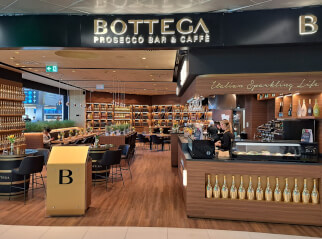
.jpg?&resize.width=322&resize.height=483)


